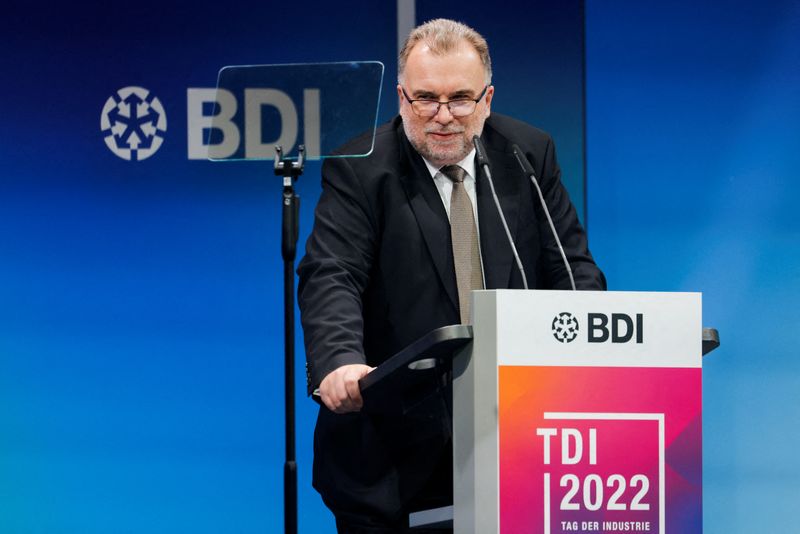BERLIN (Reuters) -German industrial production is set to fall again this year and exports will stagnate, lobby group BDI forecast on Monday, flanked by other industry groups that also painted an uncertain outlook for Europe's biggest economy.
"Industry in Germany has not yet recovered from the cost and demand shocks, from moments of extremely high energy prices and from inflation," BDI President Siegfried Russwurm said at Hannover Messe, one of the world's biggest trade fairs.
The industry association forecast a 1.5% fall in production in 2024, the same decline as last year, while exports were expected to be flat following a drop of around 1.5% in 2023.
The BDI expects the German economy to grow by just 0.3% this year, compared with forecast global growth of 3%. That would mean Germany again lagging other major industrialised countries.
The German government will on Wednesday nudge up its growth forecast for this year to 0.3%, from 0.2% previously, a source told Reuters on Friday.
"The challenges for industry remain great," said Russwurm. "German companies are currently achieving stronger growth and profits primarily at their production sites abroad."
"Despite moderate recovery prospects, we must not delude ourselves: Overall, production figures have been showing a worrying downward trend for years," Russwurm said.
The VDMA Engineering Association said a slump in foreign orders had bottomed out, but production in its sector was still expected to drop this year, confirming its previous forecast of a 4% decline.
"The negative factors are still noticeable," VDMA President Karl Haeusgen said in a speech at the Hanover Messe.
The German electro and digital industry association, ZVEI, was also cautious about prospects, as orders remained weak at the start of the year.

It forecast a 2% drop in sector production this year, although its medium-term outlook is rosier.
"Despite the somewhat tense situation at the moment, we assume that our megatrends of electrification, automation and digitalisation will always provide us with a strong tailwind, so that we have real growth prospects on average in the coming years," ZVEI president Gunther Kegel said.